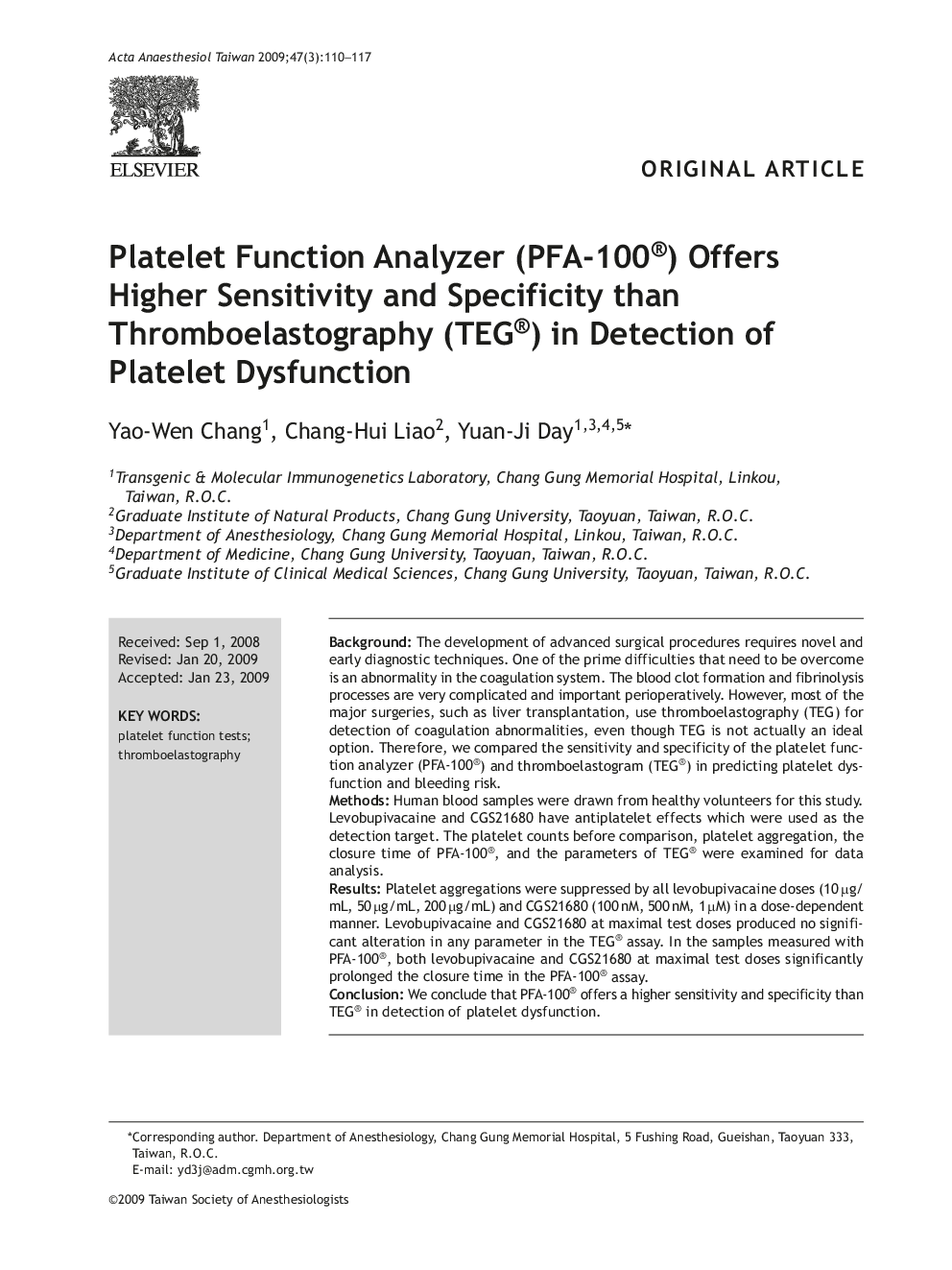| Article ID | Journal | Published Year | Pages | File Type |
|---|---|---|---|---|
| 2741636 | Acta Anaesthesiologica Taiwanica | 2009 | 8 Pages |
BackgroundThe development of advanced surgical procedures requires novel and early diagnostic techniques. One of the prime difficulties that need to be overcome is an abnormality in the coagulation system. The blood clot formation and fibrinolysis processes are very complicated and important perioperatively. However, most of the major surgeries, such as liver transplantation, use thromboelastography (TEG) for detection of coagulation abnormalities, even though TEG is not actually an ideal option. Therefore, we compared the sensitivity and specificity of the platelet function analyzer (PFA-100®) and thromboelastogram (TEG®) in predicting platelet dys- function and bleeding risk.MethodsHuman blood samples were drawn from healthy volunteers for this study. Levobupivacaine and CGS21680 have antiplatelet effects which were used as the detection target. The platelet counts before comparison, platelet aggregation, the closure time of PFA-100®, and the parameters of TEG® were examined for data analysis.ResultsPlatelet aggregations were suppressed by all levobupivacaine doses (10 mg/ mL, 50 mg/mL, 200 mg/mL) and CGS21680 (100 nM, 500 nM, 1 mM) in a dose-dependent manner. Levobupivacaine and CGS21680 at maximal test doses produced no significant alteration in any parameter in the TEG® assay. In the samples measured with PFA-100®, both levobupivacaine and CGS21680 at maximal test doses significantly prolonged the closure time in the PFA-100® assay.ConclusionWe conclude that PFA-100® offers a higher sensitivity and specificity than TEG® in detection of platelet dysfunction.
